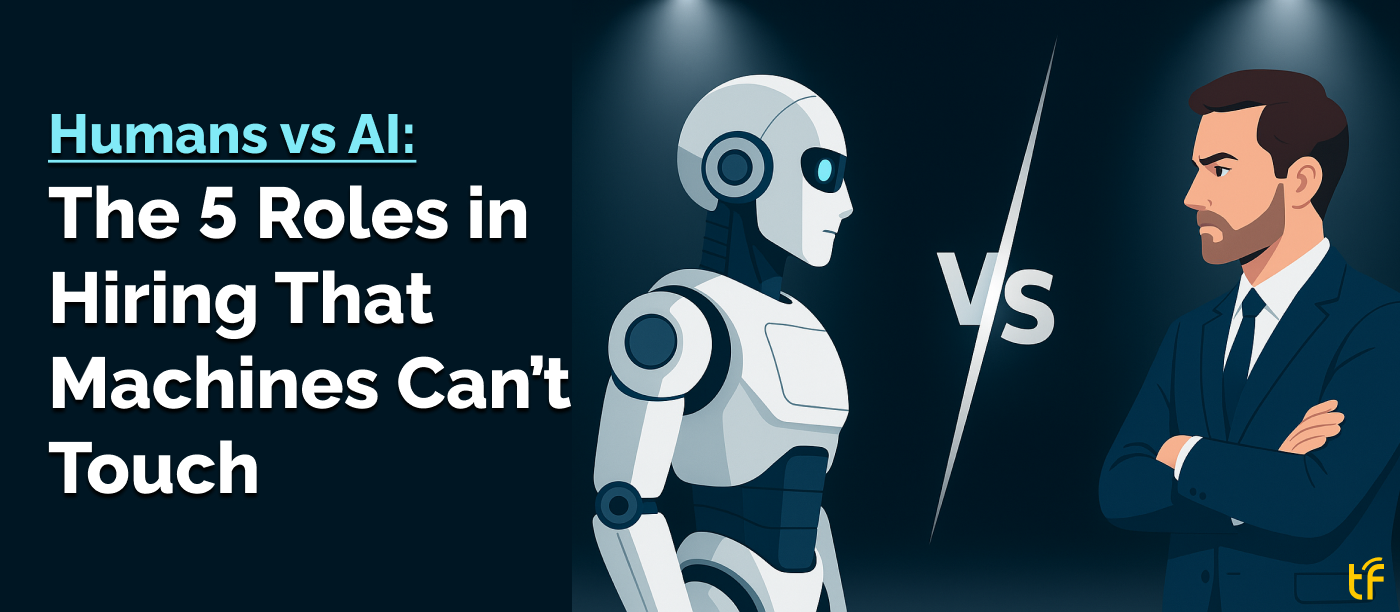
In recent years, AI powered recruitment tools have revolutionized hiring. Automation now handles tasks from resume screening and interview scheduling to candidate matching and predictive analytics. Studies show that AI can reduce bias and accelerate time to hire, with 86% of recruiters reporting faster processes thanks to AI support.
Tools range from chatbots conducting interviews to predictive models forecasting candidate success. However, despite these advances, certain roles in hiring remain uniquely human relying on emotional intelligence, creativity, trust building, and ethical judgment.
AI is excellent at processing data and automating workflows, but it can’t replicate authentic relationship building. Trust between recruiter and candidate hinges on empathy, active listening, and emotional connection skills that AI lacks. Candidates often share personal motivations, career dreams, and hesitations only when they feel understood and trusted.
Human recruiters also foster long term pipelines through consistent communication a relational nuance AI can't maintain. Hiring managers trust human recruiters to interpret feedback and candidate context. According to industry commentary, while AI streamlines tasks, “human touch is what ultimately makes recruitment successful”.
Soft skills such as empathy, adaptability, and effective communication remain beyond the reach of algorithms. Humans can read subtle cues, probe ambiguous answers, and assess authenticity examining how a candidate might influence team dynamics or contribute to company values.
AI may analyze sentiment or extract keywords, but it can’t form a holistic perspective on cultural alignment. Research shows that high stakes or leadership roles benefit most from hybrid hiring models where human discernment complements AI matching.
The power of a compelling narrative lies in personalization and that’s inherently human. Recruiters craft stories about a company’s vision and culture that resonate emotionally with candidates, helping them visualize their future at the organization.
Though AI generated messaging enhances efficiency, it lacks improvisation and resonance. Human recruiters tailor branding to individual motivations whether highlighting growth for engineers or flexibility for remote workers.
Recruitment often requires navigating complex, nuanced situations like counteroffers, relocation logistics, or unusual candidate concerns. These scenarios demand apt situational judgment and empathy not formulaic responses.
AI can flag mismatch or suggest a salary range, but only humans can mediate negotiation thoughtfully, balancing business constraints against individual needs and external context.
Recruiters also serve as stewards of ethical hiring. They oversee AI systems, set fairness parameters, audit for bias, and interpret algorithmic outputs. Without human oversight, AI models risk perpetuating institutional biases especially in video interview scoring or credential matching.
Furthermore, when data doesn’t give a clear answer or a candidate shows intangible potential, human judgment remains essential. Ethical decision making in hiring still depends on nuance, context, and moral reasoning.
Modern recruitment strategies thrive on human + AI collaboration. AI automates volume tasks screening, scheduling, ranking freeing recruiters to focus on the five human only roles described above. Surveys highlight that AI reduces hiring time by up to 75%, and cuts cost per hire significantly but the success depends on recruiter intervention at critical stages.
The best outcomes come from balanced workflows where AI enhances recruiters’ capabilities without supplanting their judgment.
Despite increased AI use, many candidates report feeling alienated. Some have described AI interviews as impersonal “dystopian,” even dehumanizing when AI bots repeated irrelevant or confusing phrases.
In another survey, interviewees confronted AI agents unexpectedly leading to discomfort and a lack of feedback for job critical interactions without human presence. This reinforces that while AI can assist, it can’t fully replace human engagement.
AI is reshaping recruitment, automating repetitive tasks, delivering data insights, and accelerating time to hire. However, AI alone cannot replace the human centric pillars of hiring. The future of recruitment lies in smart synergy: AI handles scale, humans handle substance.
The five roles machines can’t infringe:
Recruitment isn't a zero sum game of humans vs AI; it’s humans with AI. Machines do the heavy lifting, freeing humans to do the heart work of hiring where emotional intelligence, creativity, and moral insight matter most.